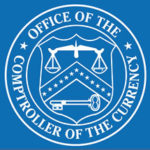
Grygo is the chief content officer for FTF & FTF News.
The Office of the Comptroller of the Currency (OCC) and the International Monetary Fund (IMF) are calling for some brakes to be put upon the mad rush to cryptocurrencies and digital assets because of the threats they might pose to the global financial infrastructure and the operational woes they could present.
Michael Hsu, the acting head of the OCC and the comptroller of the currency, said at the September 21 gathering of the Blockchain Association that the crypto craze reminds him of the Great Recession.
“I have seen one fool’s gold rush from up close in the lead up to the 2008 financial crisis,” Hsu said as part of his talk about innovation and learning from the past. “It feels like we may be on the cusp of another with cryptocurrencies (crypto) and decentralized finance (DeFi). The 2008 crisis holds lessons that can help industry and regulators chart a better path and avoid repeating the mistakes of the past.”
Hsu recommended that those in attendance read the book Fool’s Gold by Gillian Tett, a journalist for the Financial Times because it chronicles the rise of credit default swaps (CDS) and the 2008 global financial crisis.
The book “puts today’s situation with the propagation of crypto and DeFi into perspective and, I hope, will encourage innovators and leaders in the space to reexamine their efforts,” Hsu says.
The push for CDS and similar financial instruments relied “heavily on math and financial engineering. … Sound familiar?” Hsu says.
“Today, programmers and coders, instead of quants and financial engineers, are the core innovators. … The promise is a financial system that is democratized, decentralized, and secure. No banks. No bailouts. No more being ignored or betrayed,” Hsu says.
The Crypto/DeFi innovation push could be “morphing into perversion” for investors seeking high returns with “a wide range of DeFi platforms offer staking, yield farming, or liquidity mining. All of these are marketed as passive investing plays,” Hsu says.
“How are the returns generated? It is hard to get straight answers that don’t quickly devolve into cryptospeak. … Some of those who are going to be hurt most are going to be those least able to bear it,” Hsu warns.
Hsu pointed to three lessons from the past that can guide the present:
- “First, financial innovation should be anchored in purpose. Be clear about the ‘why’ – not just clear about the problem that needs to be solved, but also why it is important to solve it. Just because something can be innovated, doesn’t mean it should;”
- “Second, speak up. … For instance: What differentiates the core blockchain developers from fiduciaries in banking? Why isn’t miner extractable value seen as front-running? … Such voices and questions … will help ensure better and more sustained innovation in the long term;”
- “Third, follow the money. One thing I have learned as a banking supervisor is that the most important task when overseeing a trading desk is being able to explain how money is made and lost. I have seen my share of trading blow-ups over the years. While the causes have varied, in each and every case, the ability to explain profits and losses broke down at some point.”
 Hsu urged the U.S. blockchain and cryptocurrency industry “to do things differently. … If you apply the lessons from the 2008 crisis – anchor innovation in clear purpose, foster an environment for skeptics to speak up, and follow the money – the risks of fool’s gold can be mitigated and the real promise of blockchain innovation can be achieved.”
Hsu urged the U.S. blockchain and cryptocurrency industry “to do things differently. … If you apply the lessons from the 2008 crisis – anchor innovation in clear purpose, foster an environment for skeptics to speak up, and follow the money – the risks of fool’s gold can be mitigated and the real promise of blockchain innovation can be achieved.”
The IMF in the latest edition of its “Global Financial Stability Report: Covid-19, Crypto, and Climate: Navigating Challenging Transitions,” focuses Chapter Two on the “poor operational, cyber risk management, and governance frameworks” of the crypto ecosystem.
“Operational risks can result in significant downtime when failures and disruptions prevent the use of services and even result in large losses of customer funds,” according to the IMF paper. “Such risks have coincided with periods of high transaction activity and can result from poorly designed systems and controls,” according to the IMF.
“Cyber risks include high-profile cases of hacking-related thefts of customer funds. … Governance risks involve the lack of transparency around issuance and distribution of crypto assets and have resulted in investor losses,” according to the IMF.
 “However, as crypto assets grow, the macro-criticality of such risks is likely to increase. In addition, the crypto ecosystem remains exposed to concentration risks, given its large reliance on a few entities (for example, Binance handles more than half of trading volumes, and Tether has issued more than half the supply of stablecoins),” the IMF warns.
“However, as crypto assets grow, the macro-criticality of such risks is likely to increase. In addition, the crypto ecosystem remains exposed to concentration risks, given its large reliance on a few entities (for example, Binance handles more than half of trading volumes, and Tether has issued more than half the supply of stablecoins),” the IMF warns.
IMF officials foresee “a need for cross-border collaboration and cooperation to address the technological, legal, regulatory, and supervisory challenges.”
But authorities will have to act fast as a new report, “Cracking the Code: The Evolution of Digital Assets to the Mainstream” from consulting firm Quinlan & Associates predicts global markets are moving fast.
“With the rise of a well-regulated global security token regime firmly on the cards, market participants are gearing up to battle it out for a piece of an estimated USD 4.1 trillion listed security token issuance (and USD 162.7 trillion listed security token trading volume) by 2030,” according to the report.
“Chief amongst these participants are aspiring security token exchanges, which are aiming to disrupt the traditional capital markets ecosystem, disintermediate middlemen, and emerge as a new dominant force in the up-and-coming digital asset landscape,” according to the report. “While still early days, we believe security tokens are at a major turning point and are set to fundamentally reshape the traditional capital markets ecosystem as we know it.”
Need a Reprint?